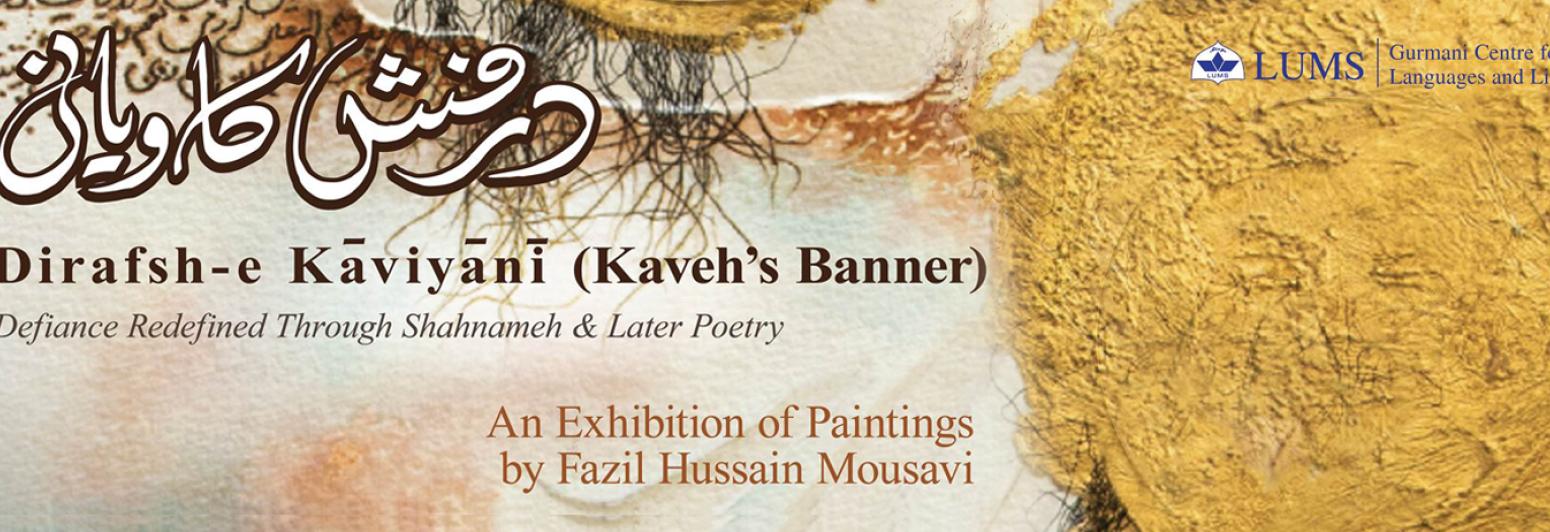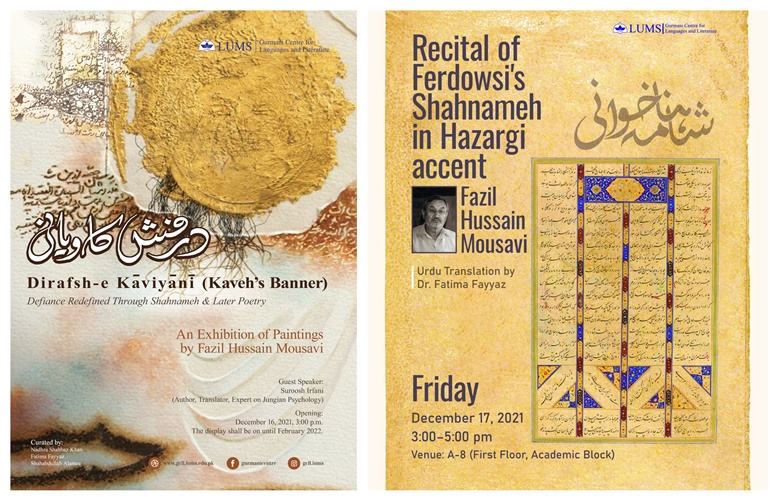
December 16, 2021
The exhibition is titled Dirafsh-e Kaviyani (Kaveh’s Banner): Defiance Redefined Through Shahnameh and Later Poetry. It will be curated by Nadhra Shahbaz Khan, Fatima Fayyaz and Shahabdullah Alamee, and will be inaugurated by Guest Speaker, Professor Suroosh Irfani, Author, Translator and Expert on Jungian Psychology.
Date: Thursday, December 16, 2021
Time: 3:00 pm
About the Artist
Fazil Hussain Mousavi studied art at the University of Balochistan, Quetta, and started his art teaching career at the Beaconhouse School System, Quetta in 1989. In 1992, Mousavi joined the city’s Iqra Army Public School and College and served until 2008. One of his memorable contributions to the institution is the logo design for the APSACS (Army Public School and College System Secretariat) still in use. The city of Quetta proudly hosts several of his commissioned artworks. These include two large fiberglass relief panels at the National Bank of Pakistan’s head office, designed in collaboration with Ramzan Shad, ten sculptural forms for the School of Infantry and Tactics (1996), and a relief panel in terracotta tiles for the Command and Staff College (2001).
Mousavi’s first solo show was at The Gallery in 1992 (the Zwanenburg’s Quetta residence) and the first international show was in 2007 at the Museum Willem van Haren, Holland. From 2003 to 2006, he curated shows and conducted workshops for art teachers on a voluntary basis. These efforts culminated in an informal art set-up named the Sketch Club Quetta in 2008. He now divides his time between the Sketch Club and his own paintings.
Mousavi’s Shahnameh’s recital at the 2019 Sharjah Biennale made him the first-ever member of the Hazara community to perform at a such a forum. Among his other achievements is the group show that featured his own and the Sketch Club students’ artworks at the Human Rights Festival 2020, Oxford Brookes University, UK.
About the Guest Speaker
Professor Suroosh Irfani completed his higher education at the Shiraz University. In 1998 he joined the National College of Arts, Lahore as an Associate Professor of Communication and Cultural Studies where he served as the founding editor of Sohbet: Journal of Contemporary Arts and Culture. As a Visiting Fellow at the Queen Elizabeth House, Oxford University, he worked on the archetypal motifs in the writings of Shahrnush Parsipur, an iconic figure of post-revolutionary literature in Iran. Professor Irfani is the author of Taza Nawa’i Mu’arek (New Songs from the Battlefields), a Persian to English translation of a 19th century text by Munshi Atta Muhammad Shikarpuri. His interests lie in the Jungian depth psychology, Sufism, literature, and the notion of the divine feminine.




















